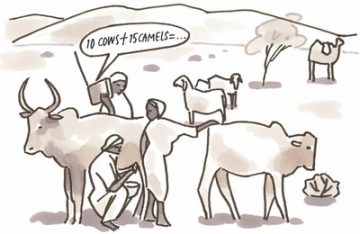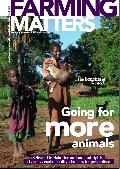Around the world, pastoralists are asking for better education programmes. “We need to move beyond thinking about schools as buildings, and find creative ways to bring education to nomadic peoples!” So states Caroline Dyer, lecturer at Leeds University, just back from Kenya, where a new education strategy to reach mobile pastoralists has been launched.

Current models of formal education depend on getting teachers and materials to scattered populations in remote areas. This is logistically difficult to organise, expensive, and usually not very successful.
In meetings with pastoralists in South Asia and Africa, Caroline Dyer, researcher on mobile education, finds the same message everywhere: “Contrary to what people assume about nomads, they do want an education – they want to know what is going on in their countries and elsewhere. And it is their right – they should not be deprived of an education just because they are mobile.”
Radio broadcasts for learning
The new Open and Distance Learning strategy is a joint initiative between the Ministry of Education and the Ministry for the Development of Northern Kenya, supported by IIED. It offers innovative combinations of flexible teaching methods – a combination of radio programmes, face-to-face teaching and printed materials. Dyer explains that “the fundamental thing is to find a way to deal with mobility. We need to be realistic about what is available and see what technology can serve the needs best.”
About the curriculum, Dyer says plainly: “They don’t want a second-best education”. In the past, educational programmes have not offered material relevant to nomadic people’s way of life. It is difficult for pastoralist students to relate to a topic such as animal husbandry, for example, when it is based on the viewpoint of sedentary farmers, rather than techniques of drylands pastoralism. The ODL strategy will localise subjects such as literacy, math and sciences to reflect pastoralists’ daily reality and knowledge. This curriculum must be nationally recognised to ensure high quality.
The ODL strategy reduces dependence on teachers, but some face-to-face teaching is necessary. Attracting good teachers to remote and isolated “mobile schools” is challenging, and they tend to be poorly paid, have low credentials and often do not speak the pastoralists’ language. Says Dyer: “We need to think differently about teachers and how to recruit them.” Having pastoralist learning facilitators in the populations is the long term aim. Until then, teachers from outside need training programmes to get an understanding of pastoralist livelihoods.

